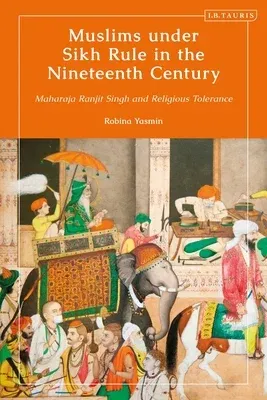Robina Yasmin
(Author)Muslims Under Sikh Rule in the Nineteenth Century: Maharaja Ranjit Singh and Religious TolerancePaperback, 24 August 2023

Temporarily out of stock
Free Delivery
Cash on Delivery
15 Days
Free Returns
Secure Checkout

Part of Series
Library of Islamic South Asia
Print Length
200 pages
Language
English
Publisher
I. B. Tauris & Company
Date Published
24 Aug 2023
ISBN-10
0755640365
ISBN-13
9780755640362
Description
Product Details
Author:
Book Format:
Paperback
Country of Origin:
US
Date Published:
24 August 2023
Dimensions:
23.39 x
15.6 x
2.54 cm
ISBN-10:
0755640365
ISBN-13:
9780755640362
Language:
English
Location:
New York
Pages:
200
Publisher:
Weight:
453.59 gm